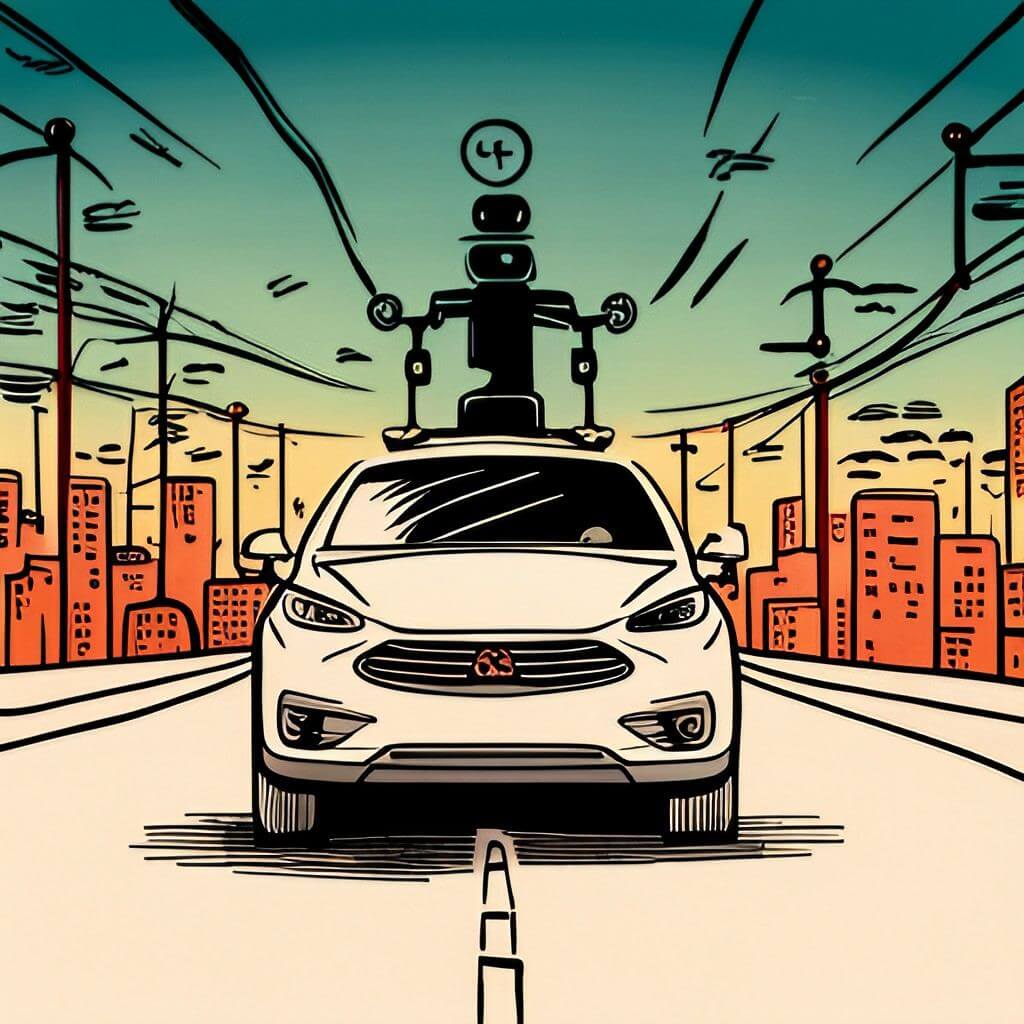In a recent development, California authorities gave the green light to two companies, allowing them to roll out self-driving cars for paying passengers in the bustling city of San Francisco. This groundbreaking move, however, was not without its hiccups, shedding light on both the potential and the perils of autonomous driving.
Initial hurdles
During the inaugural week of self-driving car operations in San Francisco, they encountered several unexpected challenges. One vehicle found itself navigating into freshly poured concrete within a construction zone, incurring unforeseen expenses as the company pledged to repair the damaged road. A more serious incident involved a collision between a self-driving car and a fire truck, resulting in an injured passenger. Consequently, the operator agreed to reduce its fleet of autonomous vehicles operating in the city.
The advent of self-driving cars in San Francisco has brought forth many ethical questions, reflecting broader concerns surrounding the growing influence of artificial intelligence in our daily lives.
Advantages of autonomous transportation
A future dominated by autonomous vehicles promises various benefits. It may usher in an era where individual car ownership becomes obsolete, yielding substantial resource savings. Furthermore, the seamless flow of traffic facilitated by self-driving cars might translate into fuel and time savings for commuters. Most critically, eliminating human drivers could reduce the human errors responsible for numerous traffic accidents, injuries, and fatalities.
Tesla CEO Elon Musk has passionately championed the development of fully autonomous vehicles as a moral imperative, envisioning a future with “virtually accident-free” roads. However, achieving this vision remains challenging, with Tesla’s Autopilot mode involved in over 700 accidents, including 17 fatalities.
Safety claims and disputes
Both companies operating self-driving cars in San Francisco assert that their vehicles have fewer accidents, particularly those resulting in injuries, than human drivers in similar conditions. Nevertheless, the credibility of such claims is a matter of debate, primarily due to doubts surrounding the environments used for comparison.
Even if the latest generation of autonomous vehicles proves less safe than the average human driver, some argue that deploying them now is justified because they could ultimately save more lives in the long run. Once autonomous vehicles are perfected, it may even become necessary to limit human drivers’ speeds or prohibit them altogether due to the unacceptable risks they pose compared to the safety of self-driving cars.
Employment impact and work-life balance
As expected, opposition to “robo-taxis” has arisen from taxi drivers, echoing similar responses in industries threatened by AI-driven automation. While AI proponents argue that increased productivity can lead to a better work-life balance, those affected by job loss may struggle to find new employment opportunities, emphasizing the need for retraining and fair compensation policies.
Looking further into the future, the success of AI could potentially lead to a world where humans have minimal employment opportunities. This scenario raises fundamental questions about how society can replace the role of work in providing meaning and fulfillment in people’s lives.
The need for AI regulation
AI programming, as exemplified by self-driving cars, is a domain that calls for comprehensive regulation. In an unregulated market, consumers may prioritize their safety over others’, potentially leading to increased accidents involving pedestrians. Only regulations that enforce impartiality in minimizing risks for all road users can prevent a “tragedy of the commons” scenario.
Another concerning issue emerging from self-driving cars is their apparent reduced reliability in detecting pedestrians with darker skin tones compared to those with lighter skin. One study attributes this discrepancy to software development and training that predominantly occurred in regions with a higher prevalence of light-skinned pedestrians. Addressing such issues becomes essential once they come to light, highlighting the ongoing need for ethical considerations in AI development.
Valuing all sentient lives
An often-overlooked ethical quandary posed by autonomous vehicles is whether they should be programmed to prioritize avoiding collisions with animals and, if so, which species to prioritize. All vertebrates and some invertebrates are sentient beings capable of suffering. Additionally, in many species, mate loss can lead to distress or the starvation of dependent offspring. These considerations underscore the importance of addressing how we value the lives and interests of all sentient beings within the framework of AI ethics.
The introduction of self-driving cars in San Francisco represents a significant step towards the future of autonomous transportation. However, it also highlights the profound ethical challenges stemming from the growing influence of artificial intelligence in our lives. While the promise of increased safety and efficiency is appealing, careful consideration of the associated risks, regulations, and ethical dilemmas is essential as we navigate the path toward a world where AI and automation play an increasingly prominent role.





